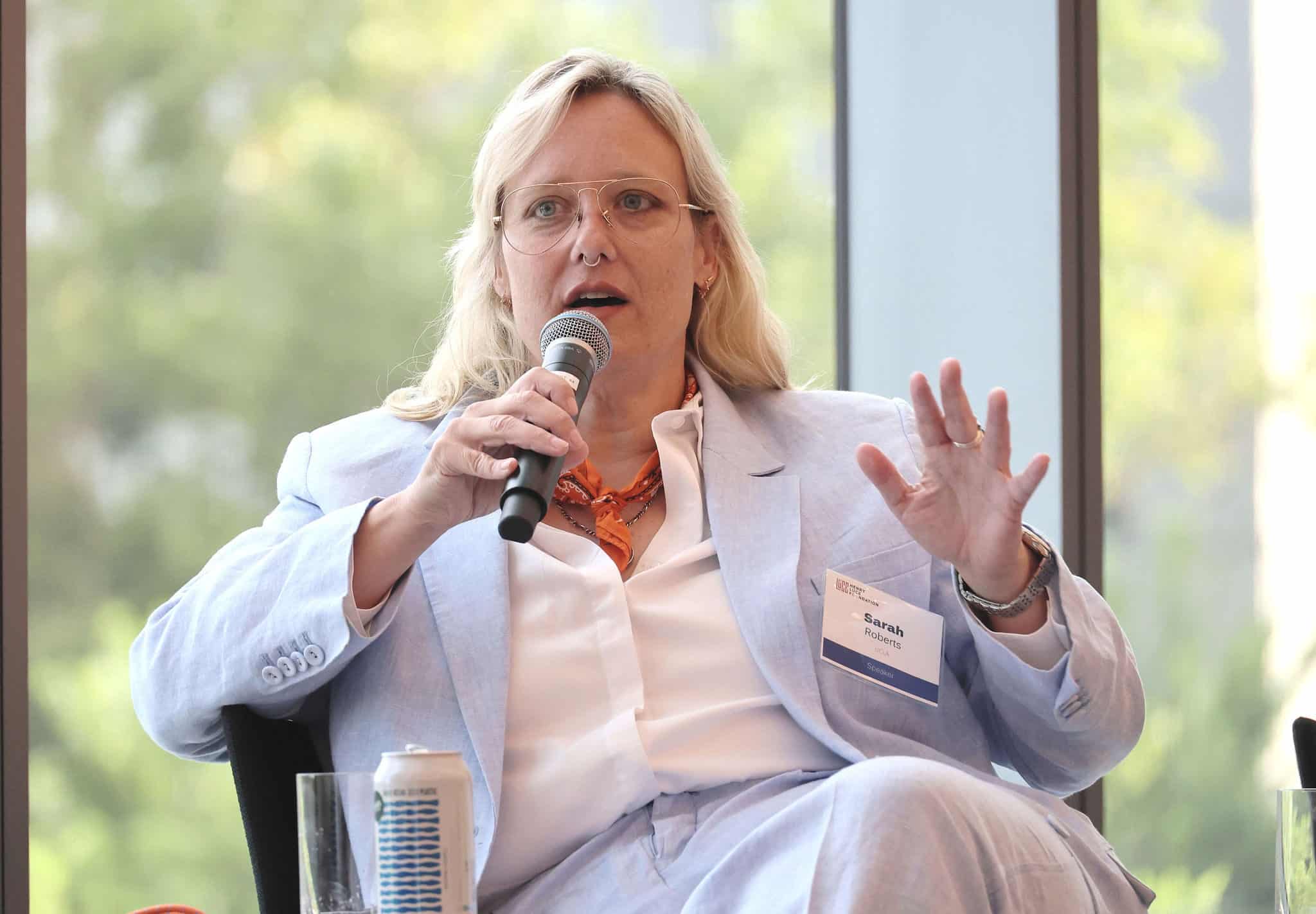Sarah Roberts, Full Professor of Gender Studies, Information Studies, and Labor Studies at UCLA, has always been conscious of the history of academic research on people and its extractive nature, particularly how people have been harmed and continue to be harmed by those kinds of practices. At the 2024 Clare Boothe Luce Conference in Chicago, Professor Roberts critiqued the growing influence of extractive AI.
Extractive AI refers to technologies that prioritize data collection and manipulation at the expense of the people they affect,” Roberts explained. This phenomenon reflects broader systemic issues exacerbated by recent judicial decisions and policies that have shifted focus from human-centered solutions to profit-driven motives.
Roberts drew attention to the impact of these policies, noting how recent legal rulings have increasingly restricted the government’s ability to regulate technology and protect public interests. “It’s a series of hostile rulings that have continued to carve away at the ability for the government to intervene appropriately,” she said. She criticized decisions like Citizens United, which equated corporations with individuals, as a profound misstep.
The speaker also addressed the limitations of techno-solutionism—the belief that complex technologies are inherently superior. Roberts used Indiana’s health care system as a case in point. “There are easier solutions,” she argued. “How about everybody has health care in the state of Indiana? We don’t need all that infrastructure.” This critique highlights the inefficiencies and ethical concerns associated with deploying costly technologies that fail to address fundamental issues.
Throughout her address, Roberts emphasized the vital role women in STEM play in challenging these norms and driving ethical change. “You are in a unique position of great power,” she told the attendees. “You have the technological skill, gaining it as we speak. But you also have principles that you bring to bear.” She urged attendees to use their expertise to advance their careers and advocate for more inclusive and ethical practices.
In addition to confronting extractive practices, Roberts encouraged attendees to engage in research ethically. “It’s crucial to consider the impact of your work on the communities involved,” she said. “Avoid extractive practices and strive for co-constructive and respectful engagement.” Her experiences with dismissive advice and harmful practices reinforced her commitment to an ethical approach to research and development.
As the panel on The Future and AI concluded, Roberts’ message was clear: the future of STEM relies on the actions and principles of those shaping the field today. “Do not ever give up your agency,” she urged.
The Clare Boothe Luce Program (CBL) was initiated in 1989 through a bequest by Ambassador Clare Boothe Luce. Since its inception, it has become the largest private supporter of women in STEM fields within higher education in the United States. The program has fostered diversity and inclusion in STEM by supporting undergraduate, graduate, and faculty women at various educational institutions nationwide. Over the past 35 years, the CBL program has distributed approximately $250 million through nearly 900 grants to over 200 colleges and universities. More than 70 of these grants have been awarded to minority-serving institutions. Through these efforts, CBL has supported over 3,500 women, helping to shape the next generation of female leaders in STEM. Learn more.
Sign up for updates
Explore Themes and Ideas































































